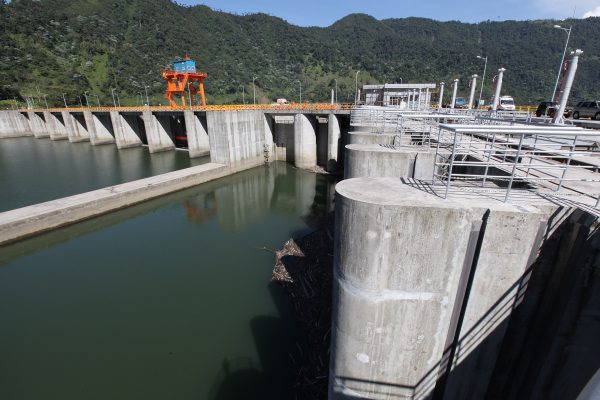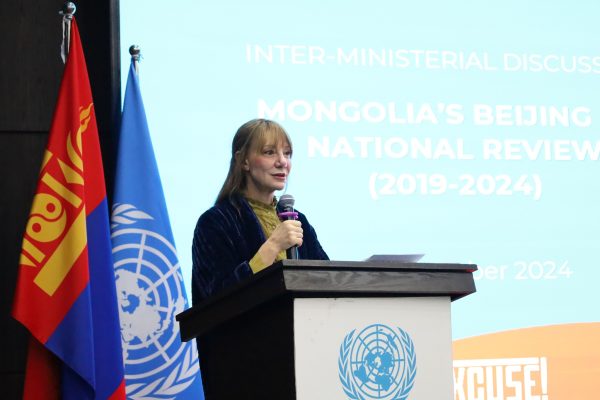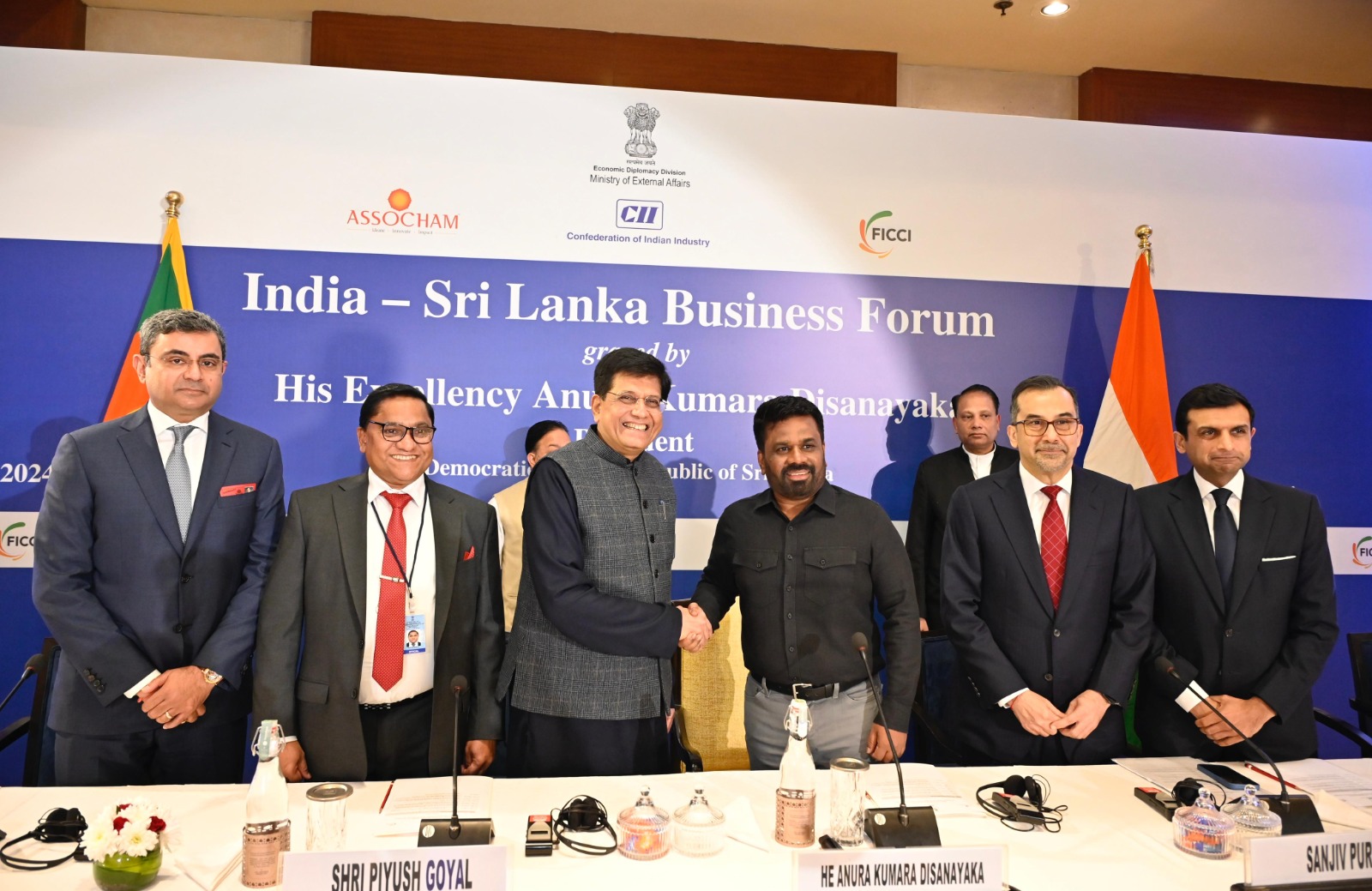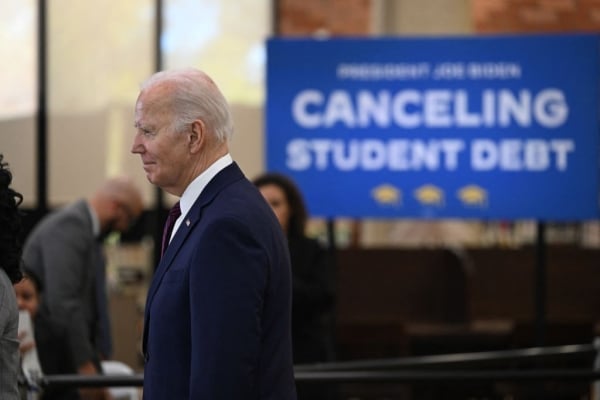A Russian firm set up in March 2022 that now boasts $588 million in assets on its balance sheet has emerged as a major financial backer in Central Asia after replacing the sanctioned Russian development bank VEB.RF in a series of transactions.
Financial records outline the meteoric rise of International Development Projects LLC, which is registered to a nondescript office block in Moscow and has two employees and no internet presence. Despite that, in 2023 the firm signed loan agreements worth hundreds of millions of dollars in Uzbekistan and Kazakhstan.
The Kremlin-owned firm’s role as a de facto replacement for the sanctioned VEB.RF in several transactions poses major questions over the effectiveness of Western sanctions and the relative ease with which Russia circumvents restrictions on one of its major lenders.
Russia’s state development bank VEB.RF, once labelled “the financial arm of the Kremlin,” was placed under sanctions by the U.S., EU, and U.K. in 2022 following Russia’s full-scale invasion of Ukraine and was shortly after disconnected from the SWIFT interbank payment system. The decision to place sanctions on VEB.RF caused ripples across Central Asian countries, which had relied on the lender to finance major infrastructure projects.
In 2021 VEB.RF was the sixth largest creditor to Uzbekistan’s largest bank, the National Bank of Uzbekistan, having lent the equivalent of $185 million to the state-owned lender. Following the sanctioning of VEB.RF in 2022, repayment rights on VEB.RF loans to National Bank were transferred to International Development Projects LLC.
In the following year, International Development Projects signed two new loan agreements with the Uzbek bank for 11 million euros to finance projects in the county’s hydropower sector, marking a shift in the Russian firm’s activities from receiving repayments to actively disbursing loans.
Documents obtained from Russia’s Federal Tax Service show that in 2023 International Development Projects signed a major agreement with the largest state-owned mining company in Uzbekistan, Almalyk Mining and Metallurgical Complex JSC, in a deal later confirmed by the company to be worth 712 million euros. Also in 2023, the firm signed agreements with Uzbekistan’s Turonbank and with the Tashkent regional authority to finance the purchase of Russian-made trains for the city’s metro system. In each of these projects, funding provided by International Development Projects LLC replaced equivalent amounts previously agreed with VEB.RF prior to sanctions being imposed.
The documents also reveal that in 2023 the Russian firm signed a loan agreement for an undisclosed amount with the Eurasian Development Bank, the lending arm of the Eurasian Economic Union (EAEU) owned by Russia and five other states (Armenia, Belarus, Kazakhstan, Kyrgyzstan, and Tajikistan).
Little is known about International Development Projects LLC beyond information provided to Russia’s Federal Tax Service. It was incorporated the month after VEB.RF was sanctioned by the U.S, EU, and U.K. in March 2022 and is registered to a small office building close to Moscow’s Bolshoi Theater. Records list a director of the firm with no other previously declared roles. An audit report for 2023 confirms that the firm’s only shareholder is the Russian Federation.
In 2022, in its first year of trading, assets on its balance sheet were worth 20.5 billion rubles, before expanding massively in 2023 on the back of signing new loan agreements to 61 billion rubles, equivalent to $588 million.
Despite the replacement of VEB.RF by International Development Projects LLC as the financial backer in major projects in Uzbekistan, the Kremlin continues to promote VEB.RF as a major player in the country. According to TASS, the Russian state-owned news agency, in 2024 the Russian lender was involved in 21 projects in mining, oil and gas, and metallurgy in the country worth $1.5 billion. The documents obtained from Russia’s Federal Tax Service suggest, however, that in several of these projects International Development Projects LLC has concluded the loan agreements, not VEB.RF.
Given the ease with which the Russian government has moved to circumvent sanctions on VEB.RF through a newly incorporated entity as a like-for-like replacement, questions are likely to emerge on the ongoing monitoring of designated entities as well as on the overall effectiveness of sanctions. In the meantime, the Russian state has been able to maintain existing financial flows and exert financial influence in Central Asia by merely switching seats at the table.





















Discussion about this post